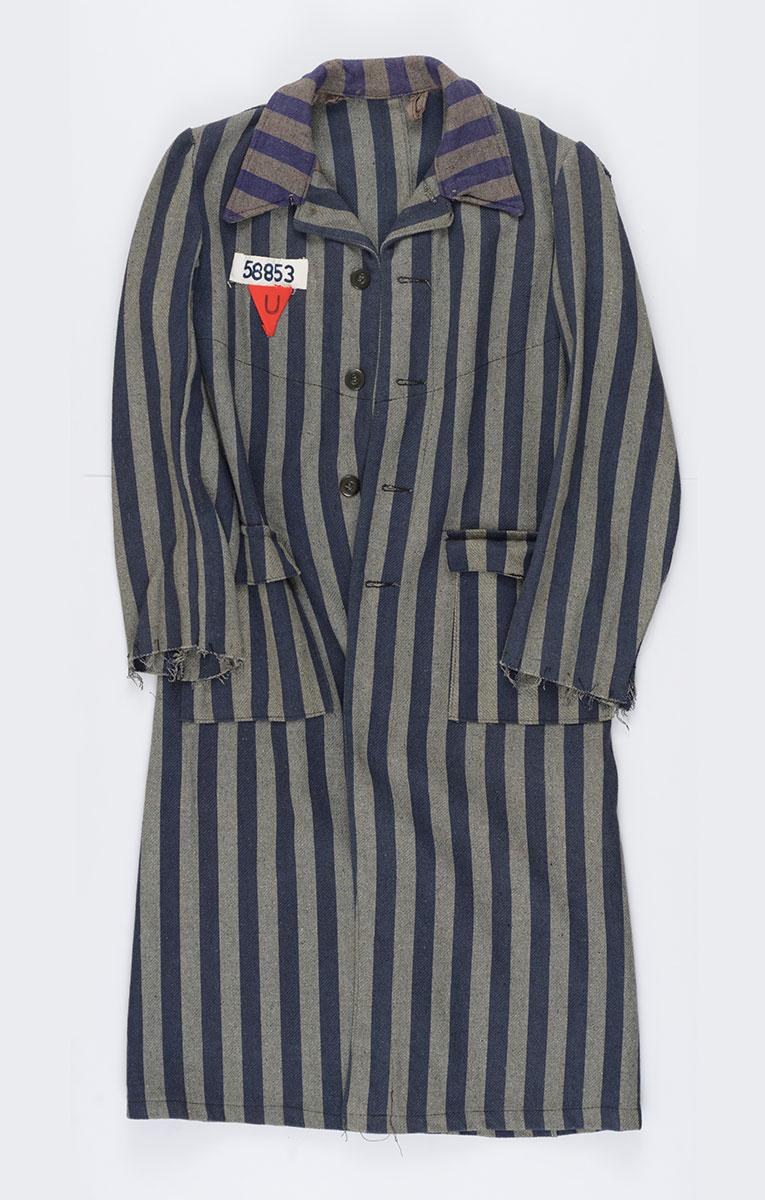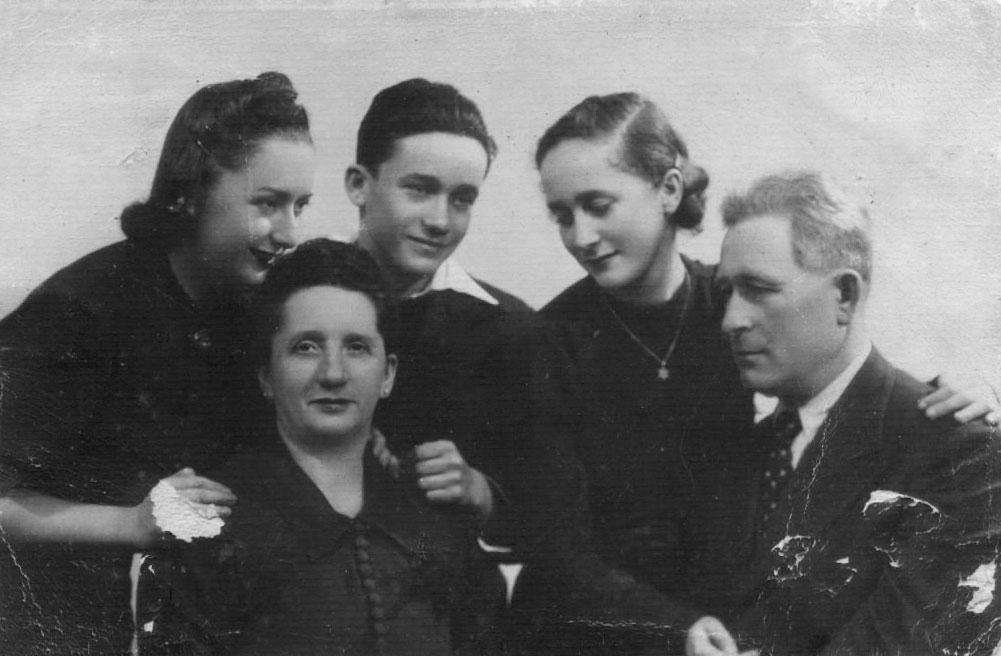
Yad Vashem Artifacts Collection
Courtesy of Ehud Walter, Kiryat Bialik, Israel


אוסף החפצים, מוזיאון יד ושם
באדיבות אהוד ולטר, קריית ביאליק

Sunday to Thursday: 09:00-17:00
Fridays and Holiday eves: 09:00-14:00
Yad Vashem is closed on Saturdays and all Jewish Holidays.
Entrance to the Holocaust History Museum is not permitted for children under the age of 10. Babies in strollers or carriers will not be permitted to enter.

Yad Vashem Artifacts Collection
Courtesy of Ehud Walter, Kiryat Bialik, Israel


אוסף החפצים, מוזיאון יד ושם
באדיבות אהוד ולטר, קריית ביאליק

After liberation, often the only clothes available for survivors were unused camp uniforms, which were found by the liberating soldiers when they opened the storerooms.
Ehud Walter was born in 1926 in Haifa to Polish parents who immigrated to Eretz Israel (Mandatory Palestine). They decided to return to Europe, and during the war, Ehud was deported to the Buchenwald camp. After liberation, Ehud took a prisoner's coat from the camp storehouses. Despite the fact that the coat was camp garb, for Ehud it symbolized liberation and new life, as did many first items of clothing that survivors received.
"In February, I was returned to Buchenwald … After a few days I was put in the children's block, no. 66. Even though we didn't work, I became weaker and weaker, the food allocation decreased each day. In addition, due to vitamin deficiency, sores began to appear on my body and I had nothing to alleviate the suffering.
It was during those days that I began to hear the distant sounds of artillery and I understood that the front was getting closer. The Nazis began to evacuate the camp and I decided to evade the evacuation at any price. It began on 4 April 4 1945 and using all sorts of tricks I managed to remain. On the morning of 11 April, I could already hear the sounds of rifle fire nearby. I felt that the moment of liberation must be approaching. In the afternoon I saw the guards in the watch-towers running away. It was quiet and there was no shooting … I raised my head and saw the block "elder" stand next to the window and shout, "Children, we are free!" All the children ran outside and a few minutes later I saw the first US tank.
I woke up surrounded by darkness and I had no idea where I was, I tried to stand up but my legs wouldn't obey me. I crawled and suddenly I remembered that I was still in Buchenwald but that now I was free. I reached the hut, hardly able to drag myself. The next day, the American Army and the Red Cross began to care for us in a way that I cannot begin to describe.
After I recovered, I found my details on the lists that they had started to compile of all of the ex-prisoners, where it was written that I had been born in Haifa in Eretz Israel. I decided that I didn't want to return to the place from where I'd been deported but to return home instead. On 6 June 1945 I reached France and I arrived home on 16 July. It was a huge privilege for me to be able to rise from a positon of degradation to being a fighter in the War of Independence."
Yad Vashem Artifacts Collection
Courtesy of Ehud Walter, Kiryat Bialik, Israel

Thank you for registering to receive information from Yad Vashem.
You will receive periodic updates regarding recent events, publications and new initiatives.

"The work of Yad Vashem is critical and necessary to remind the world of the consequences of hate"
Paul Daly
#GivingTuesday
Donate to Educate Against Hate


Worldwide antisemitism is on the rise.
At Yad Vashem, we strive to make the world a better place by combating antisemitism through teacher training, international lectures and workshops and online courses.
We need you to partner with us in this vital mission to #EducateAgainstHate
The good news:
The Yad Vashem website had recently undergone a major upgrade!
The less good news:
The page you are looking for has apparently been moved.
We are therefore redirecting you to what we hope will be a useful landing page.
For any questions/clarifications/problems, please contact: webmaster@yadvashem.org.il
Press the X button to continue



